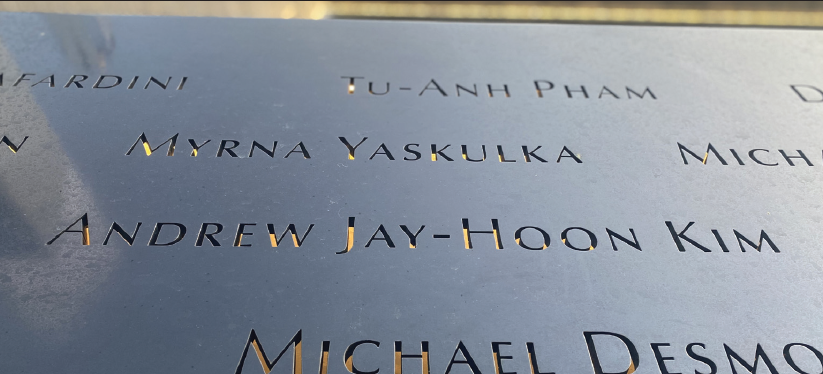On September 11, 2001, the skies of New York “fell twice” as the Twin Towers of the World Trade Center collapsed in smoke. For many Korean Americans, the shock of that day remains vivid 24 years later. The experiences of 9/11 Korean American survivors continue to shape memories, families, and livelihoods.

Streets filled with smoke and burning smell
Honggyu Park, who ran a factory in the Manhattan Garment District, was on his way to work when a deafening explosion pierced his ears. He immediately called his parents, urging them to return home, then drove several church members across the George Washington Bridge to New Jersey.
“As soon as I stepped out of the factory on 39th Street, the entire street reeked of acrid smoke. It smelled like burning flesh mixed with all kinds of other odors,” Park recalled.
Businesses forced to close
The attacks left deep scars on Korean American lives and businesses. Park said, “After the attacks, most companies that worked with New York garment factories moved to Chinese factories, and factory operators took a direct hit. I had nearly 100 employees and had to cut more than half, and for a year I covered rent out of my own pocket. It was a very hard time.”
He added that many Korean Americans closed their garment factories and switched to running dry cleaners.
Mr. Choi, who operated a Korean restaurant in Manhattan Koreatown, said, “Right after the attacks, traffic was paralyzed and tourists plummeted, so our sales dropped sharply.”
Yun-yong Park, a longtime women’s apparel business owner and head of the Korean American Community Council, said many Korean Americans doing business in Chinatown also suffered. “Many had to close their stores when access to Lower Manhattan was blocked,” he said.
Eight hours to reach safety
Young Jang, then 33, fled his Manhattan office with his wife and their three-month-old baby. But ferry landings, subway stations, and the Lincoln Tunnel were all closed due to bomb threats.
“All I could think was that we had to get out alive,” he recalled. Carrying his crying, hungry baby and supporting his wife, who was in severe pain from engorgement, Jang walked toward the George Washington Bridge. The Manhattan-bound lanes were closed, but some lanes to New Jersey were open. After an exhausting eight-hour journey, his family finally made it home.
Trapped in ash after the second attack
Jang’s younger brother, then 25, was showering in his dorm at New York University (NYU) when the first attack occurred. The campus sat only about 4 kilometers from the World Trade Center. Feeling strange tremors, he turned on the news and rushed outside.
As he stepped into the street, a thunderous blast followed—a second attack hit—and everything turned white with ash. “I couldn’t see an inch ahead,” he said. Swept up in a panicked crowd, he reached a friend’s home on 12th Street after three hours.
Grieving families seek peace
For some, the pain will never fade. Pyungkyum Kim lost his son Andrew Kim (Korean name: Kim Jaehoon), who worked in the North Tower of the World Trade Center. Andrew was 26.
After the attacks, Kim founded the Andrew Kim Memorial Foundation, a scholarship organization honoring his son. “More than 20 years have passed, and it is time to do more than simply grieve—this kind of tragedy must never be repeated,” Kim said. “Many families left New York because of trauma, but after so many years, I hope we can come together again in the victims’ names to pursue lasting peace.”
For many 9/11 Korean American survivors, the call is the same: remember the names, protect the living, and seek permanent peace so the day is never repeated.




